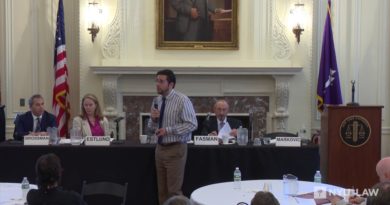OFCCP’s Proposed Modifications to Scheduling Letter Would Result in Additional Burdens for Contractors Responding to Audits
In case the National Labor Relations Board’s recent decisions and the Federal Trade Commission’s new proposed rule on non-competes haven’t given employers enough to think about in the new year, companies with federal contracts or subcontracts may soon be faced with significantly more burdensome audits from the Office of Federal Contract Compliance Programs (OFCCP) as well.
In the midst of the hustle and bustle of the most recent holiday season, the OFCCP published a notice in the Federal Register regarding numerous proposed revisions to the scheduling letter and itemized listing the agency uses to obtain information from contractors and audit their compliance with equal employment opportunity and affirmative action requirements.
Among other things, the proposed modified scheduling letter and itemized listing include the following changes:
- A new request for information regarding the contractor’s prior year affirmative action goals and employment activity data (i.e., applicants, hires, promotions, terminations, and incumbency) in addition to the existing request for current year goals and employment activity data;
- A new request for documentation regarding all recruiting, screening, and hiring policies and practices, including the use of any artificial intelligence, automated, or technology-based selection procedures;
- A new request for detailed information and documentation regarding promotions, including any applicable policies and practices, whether or not a promotion was competitive or noncompetitive, and data relating to the applicable supervisors, compensation, departments, job groups, and job titles from and to which the promotions occurred;
- A new request for detailed information regarding terminations, including the reasons for the terminations and the gender and race/ethnicity of each person terminated;
- A new request for documentation demonstrating that the contractor “has satisfied its obligation to evaluate its ‘compensation system(s) to determine whether there are gender-, race-, or ethnicity-based disparities,’” including (i) when the compensation analysis was completed, (ii) the number of employees and categories of employees the compensation analysis included, (iii) which forms of compensation were analyzed and how different forms of compensation were separated or combined for analysis, (iv) that compensation was analyzed by gender, race, and ethnicity, and (v) the method of analysis used by the contractor;
- A modified request that the contractor provide two years of compensation data: (i) a set of data as of the date of the current year’s organizational display or workforce analysis, and (ii) a set of data as of the date of the prior year’s organizational display or workforce analysis;
- A modified request that the contractor’s compensation data include data on compensation for any temporary employees assigned through an agency in addition to data for the contractor’s own employees; and
- New requests for documentation relating to the contractor’s (i) good faith efforts, (ii) steps taken to determine whether impediments to equal employment opportunity exist, (iii) actions taken to remedy any underutilization of individuals with disabilities, (iv) assessment of personnel processes, (v) assessment of the effectiveness of its outreach and recruitment efforts, and (vi) development and implementation of programs to correct any identified problem areas.
The OFCCP’s proposed changes would also require post-secondary institutions or other contractors “with campus-like settings” that maintain multiple affirmative action programs to submit the information requested in the scheduling letter and itemized listing “for all AAPs developed for campuses, schools, programs, buildings, departments, or other parts of [the] institution or company” located in the same city and state as the audited location.
If the proposed changes are approved, the scope of the information to be provided and the burden of responding to the OFCCP’s initial audit requests will increase substantially. While any such changes would not go into effect until after the current scheduling letter and itemized listing expire in April 2023, contractors with concerns about the OFCCP’s proposed changes should submit any comments to the OFCCP now before the January 20, 2023 deadline.
Covered contractors should consult with their employment counsel to ensure that they are prepared to respond to the modified scheduling letter and itemized listing in the event the proposed changes are approved.






